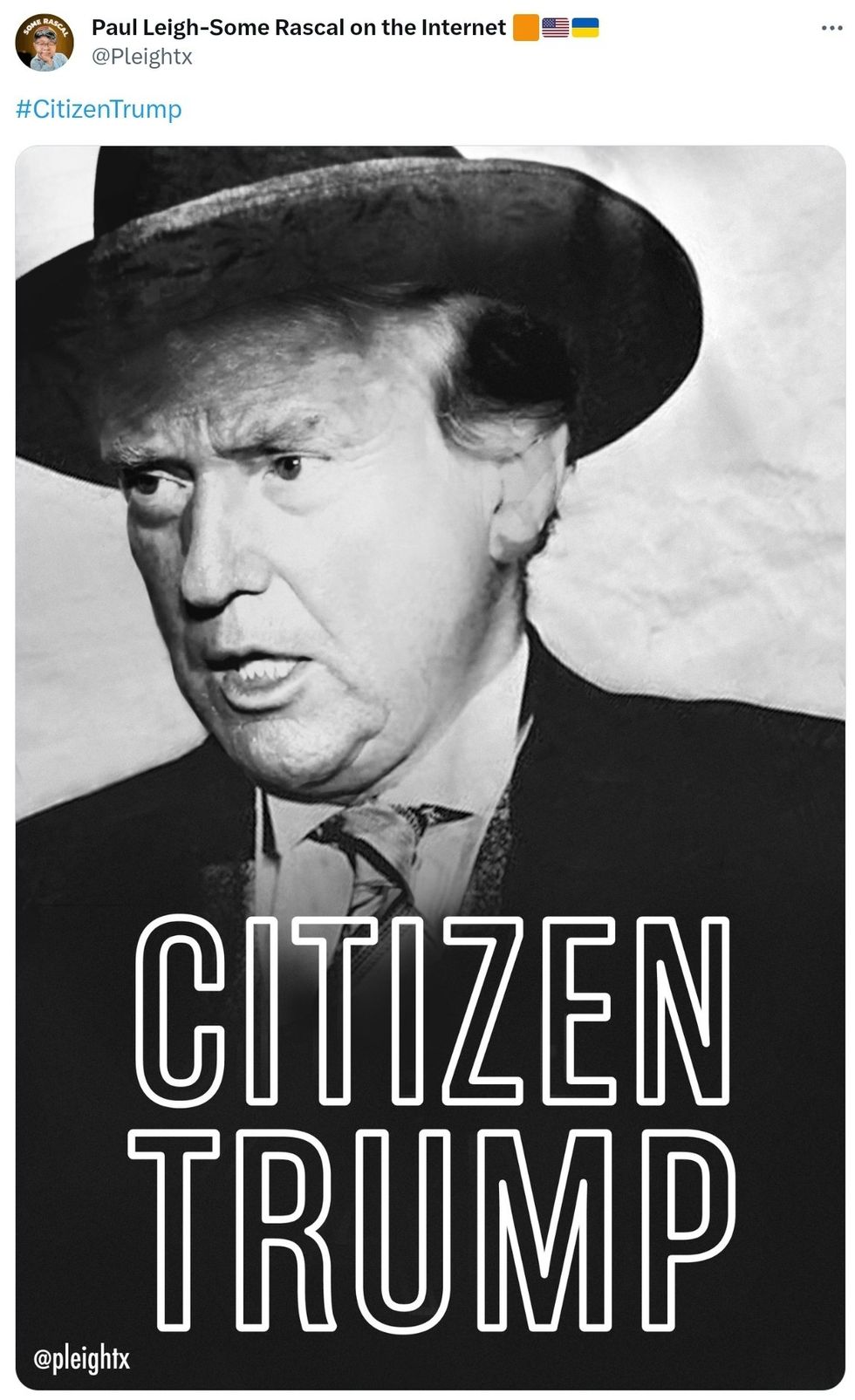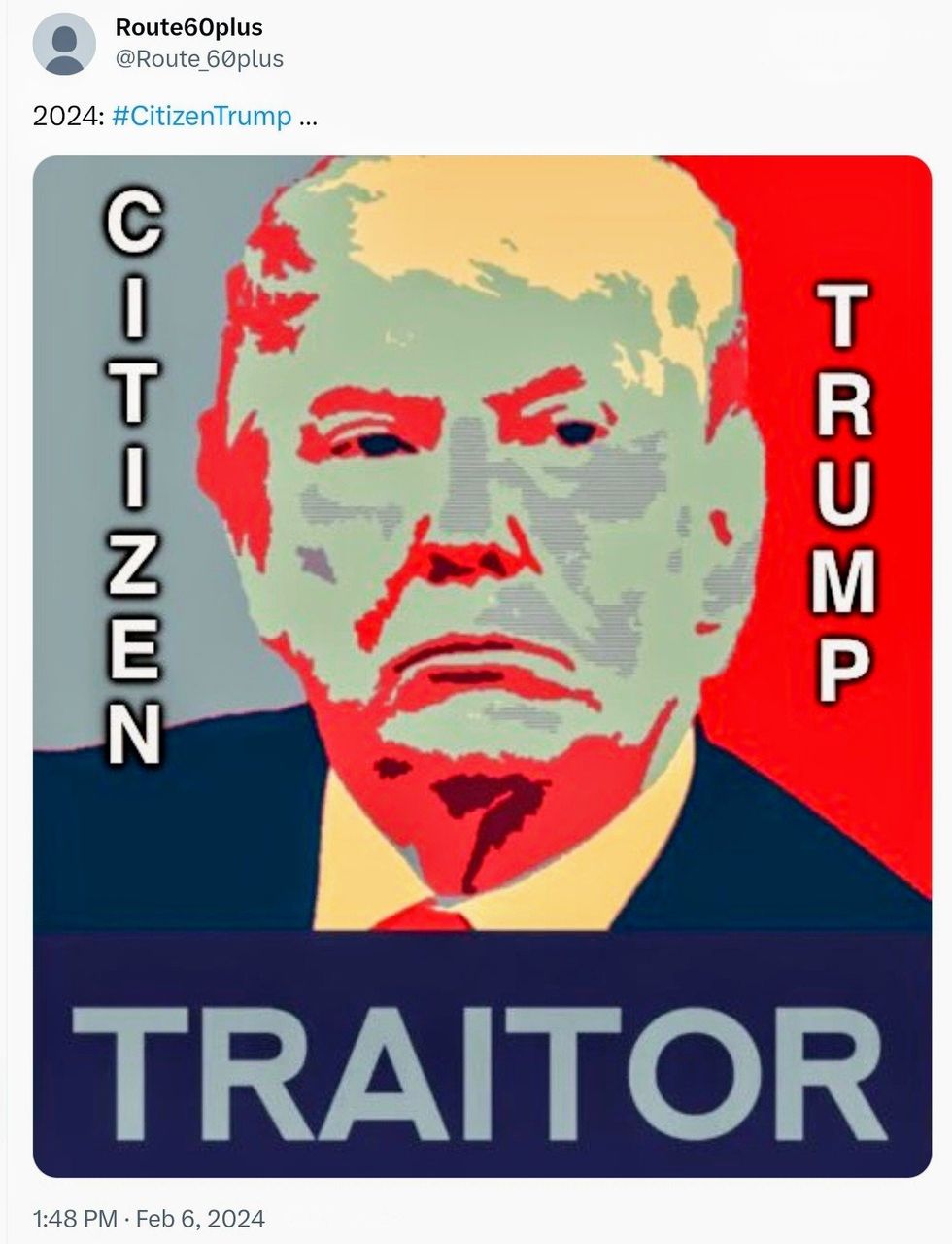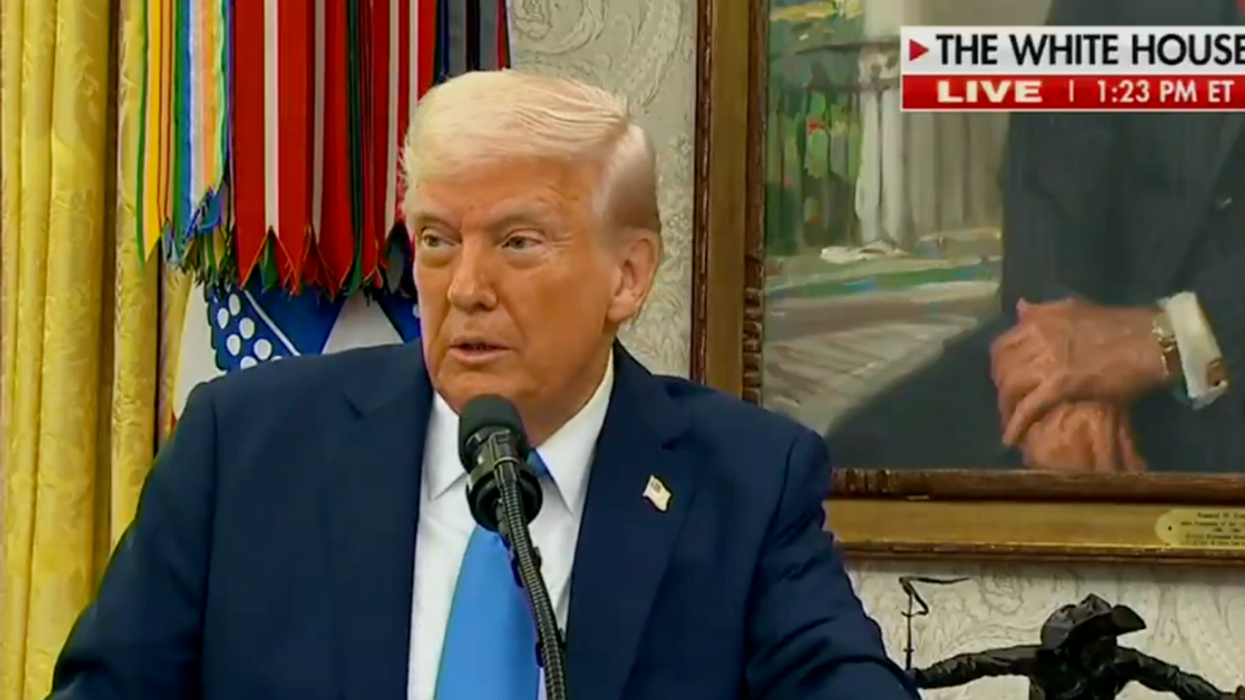On Tuesday morning, the United States Court of Appeals for the District of Columbia Circuit issued their much-anticipated ruling on former Republican President Donald Trump's claim of absolute presidential immunity against criminal prosecution for his attempts to overturn his 2020 election loss to Democratic President Joe Biden.
In addition to multiple frivolous unsubstantiated lawsuits, harassment and slander against election workers, and pressure placed on elected officials, the Trump team's Big Lie incited the January 6, 2021 insurrection. And with today's ruling, Trump can be held criminally liable for his part in any of it.
The three impaneled judges wrote in their unanimous decision:
"We cannot accept former President Trump's claim that a President has unbounded authority to commit crimes that would neutralise the most fundamental check on executive power—the recognition and implementation of election results."
The judges added:
"For the purpose of this criminal case, former President Trump has become citizen Trump, with all of the defences of any other criminal defendant."
"But any executive immunity that may have protected him while he served as President no longer protects him against this prosecution."
George Conway—attorney, Trump critic and soon-to-be ex-husband of Trump advisor Kellyanne "alternative facts" Conway—shared the ruling on X.
Georgia Republican Representative Marjorie Taylor Greene sounded off on X about the decision.
Greene reportedly posted—then deleted—on X:
"There is a title [sic] wave of truth that is about to start coming out."
But outside the MAGA minions, people weren't sympathetic to Trump possibly facing consequences for his actions.
The hashtag #CitizenTrump began trending soon after the news broke.
And with the hashtag, X users brought the memes.



Trump's final recourse is an appeal to the United States Supreme Court.
It's unknown if SCOTUS would agree to hear the case or pass on it, letting the lower court ruling stand. In December, the court declined to rule on the case until after the appeals court ruled.








 @PreetBharara/X
@PreetBharara/X @RepBrendanBoyle/X
@RepBrendanBoyle/X @twesq/Bluesky
@twesq/Bluesky @christopherharris/Bluesky
@christopherharris/Bluesky @evangelinewarren/X
@evangelinewarren/X






 @FrankC164/X
@FrankC164/X
 AMC
AMC